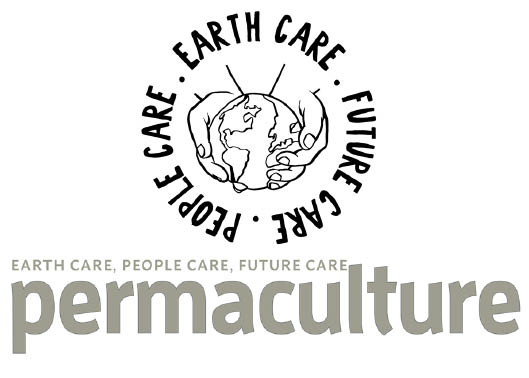We’ve been doing some housekeeping and have moved many of the manufacturer-specific FAQs to the bottom of the associated manufacturer pages – click on the links below to see them!
Not at all. Here at WooWoo, we sell a wide variety of compost toilets, each type has specific qualities or features that make it more or less suitable to certain situations. The way you use each one will be slightly different, but let’s go through the basics for each manufacturer:
Separett – the Villa and Tiny urine diverting toilets are compact and don’t need any sawdust or other material added at the ‘in use’ stage. Open the lid and sit down – your weight will cause the concealing screen to open, ensuring faeces can drop down into the container. Male users should down to urinate (to ensure urine goes to the front only) and ladies may have to adjust their position slightly forwards. Toilet paper can be placed in the solids container, but you will need to remain seated to ensure the concealing screen stays open to do this. There’s nothing else to press or push – that’s it!
Air Head – once the Air Head is setup initially (with a cocoa coir block in the main chamber), the user sits down. There is a lever on the side that opens the concealing flap so faeces etc can drop through. When you’re done, close the flap, close the lid and slowly turning the handle on the side a couple of times to mix the contents.
WooWoo GT – because the WooWoo GT doesn’t use a urine separator, there is no issue if male users stand to urinate, and no requirments in terms of where or how you sit. They can be maintained so that the user adds a scoop of wood shavings after each solid use (no need to add anything after a wee), or the owner/operator can add wood shavings weekly, so the user just goes to the toilet and that’s it, making it incredibly simple to use!
Alectura – like the WooWoo GT, this doesn’t use a urine separator so is simple for anyone to use. Just open the lid on the porcelain pedestal and use it like any other toilet. Depending on the way it’s going to be managed, either the user can add a scoop of wood shavings after each solid use (no need to add anything after a wee), or the owner/operator can add wood shavings weekly. Simple!
Kazuba – for the user, the Kazuba cannot be simpler. They just sit down and use the toilet. Paper is dropped into the toilet pan. That’s it. Super simple!
Not at all! Way back (well actually, just over a hundred years ago), people were only just beginning to understand the relationship between diseases and sanitation, hence the streets were often open sewers and preventable disease was rife.
Modern compost toilets are a world away from open sewers! And whilst the Victorians may have pioneered the flushing toilet, it’s now clear that when you flush, you just move the problem somewhere else.
In the UK, like many other parts of the world, we use clean, drinking-quality water, to flush our ‘business’ down the sewers, only to find it popping up in rivers and seas as our treatment systems are unable to cope. With increasing populations, pressure on farmland to produce more food, and climate change, we increasingly find water scarcity issues in the summer, together with flooding in the winter. Our absurd use of high-quality water as a ‘flush’ should be questioned more and more.
A compost or composting toilet provides a clean and sanitary solution to our toilet requirements, whilst the whole process retains many of the nutrients that would otherwise be lost. This not only decreases our reliance on fossil-fuel based fertilisers but can create business opportunities within local, circular economies to collect and safely process the otherwise lost nutrients.
We believe that compost toilets are a step forwards towards a better future for everyone and the environment at large. It’s a win-win for everyone!
Technically yes. Providing the composting process is thorough (time and/or heat), then it should be safe from pathogens. However, there are other factors which might make it better to use it as mulch around trees and shrubs. Find out more on our composting process page: https://www.waterlesstoilets.co.uk/composting-process/
Yes. Almost all types and makes of toilet paper are fine – they are typically made from wood pulp so will break down and compost over time, adding carbon into the mix. With a domestic toilet (ie not public or shared), you can place ‘wee-wipe’ toilet paper in a separate bin for later burning or binning. This will increase the overall capacity of your compost toilet.
WooWoo has supplied and installed waterless toilets across the UK and works with manufacturers that have experience in all conditions, from National Parks in Iceland to hot deserts in Australia.
As mentioned in other FAQs, and explored throughout our podcast series, some of our waterless toilets are compost toilets – essentially collection units for later composting (away from the toilet), whilst some are composting toilets – in other words, the composting is taking place within the toilet itself.
With a compost toilet (ie not composting within the toilet), the temperature will not affect the toilet in any way. When the contents are transferred to the composting bin (or whatever container or system you are running), then the ambient temperature will have an affect on the speed of composting.
Below around 7ºC composting will naturally come to a halt because it’s too cold for the composting bacteria to do their work. With a large enough mass of material, composting could carry on, but in most cases (apart from commercial scale composting operations), there simply isn’t sufficient bulk of material to allow this to happen.
The ventilation systems will still work in all temperatures, taking odours away, but the raw material will sit there, waiting for the temperature to rise, at which point, everything starts again.
Find more information on composting in our ‘the composting process‘ page and also in this blog post.
Properly installed and maintained, a compost toilet will smell no more than a flushing toilet, and in some cases, even less (due to the active ventilation system)!
We sell a variety of different types of compost toilet, and each type has it’s own methods, but some of the general principles are as follows:
Separett and Air Head products are relatively small and separate the urine from the faeces at the point of use with a special design of toilet bowl. Keeping the solids relatively dry within the container is the first step in odour control for small toilets. A low-powered electrical fan, running continuously, draws fresh air into the toilet and pushes any foul air outside where it quickly dissipates in the atmosphere. In addition, the Air Head uses a coir block and a mixing system that breaks up solids, aerates them and coats it in the coir medium.
WooWoo GT models actually compost within the container (which is why we supply two containers – one to fill and and the other ‘resting’ and composting. To do that, they use a carbon-based cover material (added either at point of use, or weekly by the operator). This works with the nitrogen in the faeces and urine to start the composting process. In addition, the amount of moisture is automatically regulated by the unique false base which lets excess liquids down into the lower base. When the container is around one third full, composting will be happening automatically – this will also reduce the odours as the bacteria that do the composting also consume the odour producing elements. A fan (wind powered or electric according to your needs) takes away excess moisture and odours.
Alectura works in a similar way to the WooWoo GT. Excess moisture passes through the system and out of the bases. A powered ventilation fan takes away both odour and moisture.
Kazuba has a basket under the toilet bowl that initially catches everything. Due to the well designed airflow system, fresh air is drawn down the toilet bowl and over the basket, where it will evaporate much of the liquids and carry away any odours. When the first basket is full, it’s slid to the rear of the chamber, where it sits in the airflow for a further period of time and the contents are dried out.
With all waterless toilets, it’s important to ensure you get the right one, matched to the expected use and maintenance expectations. WooWoo has a great team of people who will be able to help you make the best choice – get in contact to find out more.
We also have a blog post with much more detail:
https://www.waterlesstoilets.co.uk/2024/05/31/why-dont-our-compost-toilets-smell/
It depends on several factors. The things to think about are the number and health of the people using the toilet, the thoroughness of the composting process and to an extent, where you are located.
If the toilet is used primarily by your family, and you know they are in good health, then we suggest composting over at least a six month period that includes summer (for good ambient temperatures), and then leave the fresh compost to mature for a minimum of a further six months.
If the toilet is used by members of the public, and therefore, their general health is not known, then it’s important to adopt a precautionary approach and ensure the primary composting process happens over a twelve month period, with a further six months maturation (ie emptied from the composting container).
For users located in tropical regions, where there is a higher risk of intestinal parasites, the UN recommend a two-year primary composting process to ensure all potential pathogens and parasites are destroyed in the composting process.
The composting process can be accelerated by ensuring a good balance of carbon and nitrogen (see our blog post), ensuring the container is neither too wet or dry, and potentially mixing/aerating the contents. However, if all of this sounds like to much work, don’t worry, time will have the same effect – just leave nature to naturally do the composting for you.
It very much depends on the model and type of compost toilet you are using. The larger toilets we sell, like Kazuba, are designed to be very low maintenance, but in order to achieve this, they are physically larger, need more work to install, and are more expensive.
We’re happy to talk to you about the maintenance involved on any of our systems, but here’s a brief summary:
Separett and Air Head are typically compact, urine-diverting toilets. The solids container will need to be transferred into a compost bin when required. On the Tiny, this can be after 15-20 solid (poo) uses, depending on the amount of toilet paper used, and on the Villa and Air Head, this can be after up to 60 solid uses. Models that capture the urine in a container, will need that container emptied in an appropriate place regularly (ideally every day).
WooWoo GT is available in two capacities and the starter kit will container two containers – one ‘in use’ and one ‘composting/resting’. The 120-litre unit will need to be swapped at around 200 solid/poo uses and the 330-litre can take up to 800 solid/poo uses. The amount of urine use generally doesn’t affect the overall capacity. Actual capacity will depend on the nature/frequency of use and the amount of wood shavings used. Leachate (liquids run off) can usually be run into a soakaway pit, but in places where that isn’t possible, it’s captured in a container which will need emptying when full. Swapping the containers over will take up to 15 minutes.
Alectura has a maximum capacity of 90 litres per chamber and as with the WooWoo GT, two are supplied. Every week, the owner/operator should use the supplied handle to rotate and mix the contents of the chamber. This will level the heap and aerate the contents, promoting better composting. When the ‘in use’ chamber is full, swapping the containers will take up to 15 minutes. The Alectura comes with a custom designed trolly to help move them around and lift with minimal effort.
Kazuba has the lowest maintenance requirements. Generally, the ‘baskets’ will need swapping every six months. This involves moving the ‘in use’ basket to the rear of the Kazuba so it can sit and dry in the air flow. The empty basket slid over the other one, into the ‘in use’ position. This will take up to fifteen minutes. Depending on the amount and frequency of use, the Kazuba may require a pumpout empty every few years, although many users don’t need to do this.
Yes it is. In 2010, the Building Regulations for England were changed to officially permit composting toilets as part of a drive to reduce domestic water consumption. Similarly, in other regions in the UK, the use of compost toilets is legal.
There are various regulatory bodies (planning, building regs, environment agency) that might want to know more about the toilet, and how you plan to deal with any outputs.
These bodies will be interested in the safety of the toilet for the user and the person(s) maintaining the compost toilet, as well as the wider environment.
For various reasons, people can have strong views on whether urine should be separated or not based on their previous experiences. We believe both separation and non-separation of urine can work equally effectively in the right situation, so it’s important to consider the setting and typical user base of the toilet, together with any location and size restrictions and go from there. Naturally, we’re happy to help guide you to make the most appropriate choice.
In some circumstances, separating the urine is a good option as it allows you to reduce the volume of the material to be composted and can make aspects of the management easier.
For public and semi-public toilets, we recommend toilets where the separation is done automatically, deeper within the toilet (ie not with a urine diverting bowl). An example of this is the Kazuba system where excess liquid falls onto an evaporation plate, so the user is not aware of it, and isn’t required to sit in a specific position, meaning it’s simple to use without the need for complicated instructions.
For homes. mobile users (boats, motorhomes etc) and where the use is low and/or space is limited, you can opt for a toilet with a urine diverter, such as those made by Separett or Air Head. Users will need to be given instructions (such as always sit fully down on the toilet), however, most people will easily adapt to this.
The WooWoo GT composting toilet is an example of a non-separating toilet (technically, you could argue that the urine is being separated through some evaporation, consumption in the composting process and ultimately some leachate discharge).
There are loads of benefits to having a compost toilet! Here’s just a few:
Our preferred method of dealing with the solids (faeces) from a urine-diverting compost toilet is always to compost them in a compost bin (see our page on composting) as they ‘close the loop’ and return valuable nutrients safely to the earth. However, there may be situations, such as in motor homes or boats, where it’s impossible to compost on the go or store anything for later composting at home or on land.
In these situations, you may be able to dispose of small amounts (under 7kg) in municipal waste bins or official council waste disposal sites (the waste will be classed as non-recyclable and is typically used in an energy recovery process) provided the contents are double-bagged and clearly labelled (you can buy ‘tiger bags’ for such a purpose). The contents are referred to as ‘offensive waste’ and come under the same waste classification as used nappies and adult incontinence pads.
If you have permission from a land-owner, you could also bury the contents in the earth. Make sure you are away from a water course, and ensure wildlife and other people can’t easily come into contact with your ‘gift’.
If you’re on a canal or river, never discharge urine or faeces into the water (we hope that’s obvious!), and don’t use the bins provided by the CRT (Canals and River Trust) as they prohibit compost toilet disposal in their bins (it’s a long story…).
Whatever method you choose, always dispose of solid waste safely and responsibly.
Generally don’t worry. The precise answer depends on which type of toilet you have and how much diarrhoea is present.
With Kazuba toilets, you don’t need to do anything. The system can easily cope with diarrhoea and it poses no issues in terms of odour or the need to change the baskets etc.
With the WooWoo GT and Alectura composting toilets, you’re probably OK to do nothing more than add a sprinkling of wood shavings (or whatever your chosen cover material is) – this will visually cover everything up (not that you can necessarily see inside anyway!), but the dry cover material will help absorb excess liquids.
With small urine-diverting toilets like the Separett Villa and Tiny, and the Air Head, you can either add some dry material (like wood shavings to sawdust) to act as a soak and visual cover. In severe cases of diarrhoea, you may wish to empty the solids container early.
Before you start to think of the right bin, you’ll need to estimate how much material you are going to be composting, and then work on the principal that it’s going to be sitting in that container for 12 months or more (for cold composting). Hot composting will make the material safe in a much shorter time period, but they require more maintenance.
There’s no rules as to which is the best – your composting solution can be as simple as four pallets tied together and a piece of old carpet over the top, a commercial plastic ‘dalek’ bin or a tumbling composter.
If you have a number of compost toilets in a holiday let, part of your planning permission might also include a requirement to compost in sealed containers (ie not open to the ground), but that’s not always the case.
Standard plastic compost bins can be purchased in a number of capacities and it’s likely you’ll need several of them. Keep records of when they are filled, so you know when they’ll be safe to use.
For users who are processing greater quantities of material, Ridan manufacture both hot/rapid composters and metal ‘maturation’ bins which are rat proof.
For more information on the composting process, check out our detailed page:
https://www.waterlesstoilets.co.uk/composting-process/
That’s a great question. In essence, all of these words describe a toilet that doesn’t use any water to ‘flush’, so it’s waterless or dry.
However, not all toilets produce compost – some just capture the ‘ingredients’ that might be composted later, away from the toilet. Generally, they try to keep the solids as dry as possible so often separate the urine in some way. We call these compost toilets (as opposed to composting toilets), but you might prefer just to say waterless or dry. An example of this would be the Separett Tiny, Separett Villa or the Kazuba products.
If the toilet actually does the composting (ie you empty compost at the end of a period of time), then these are composting toilets. These tend to be physically larger (but not always) as they need to contain more material to enable composting to take place. As example of a composting toilet would be the WooWoo GT or the Alectura.
You can also find out more by listening to Episode 2 of our podcast series.
Not sure which toilet is right for you, need a quote or want to know a little more information?
Help us advise you by telling us a little about your situation - or even better, give us a call to discuss options!
Alternatively, you can write us an email at:
or give us a call on:
Sign up to our newsletter to receive WooWoo news and offers
Like us on Facebook
Suppliers














